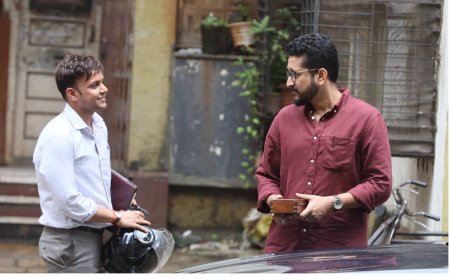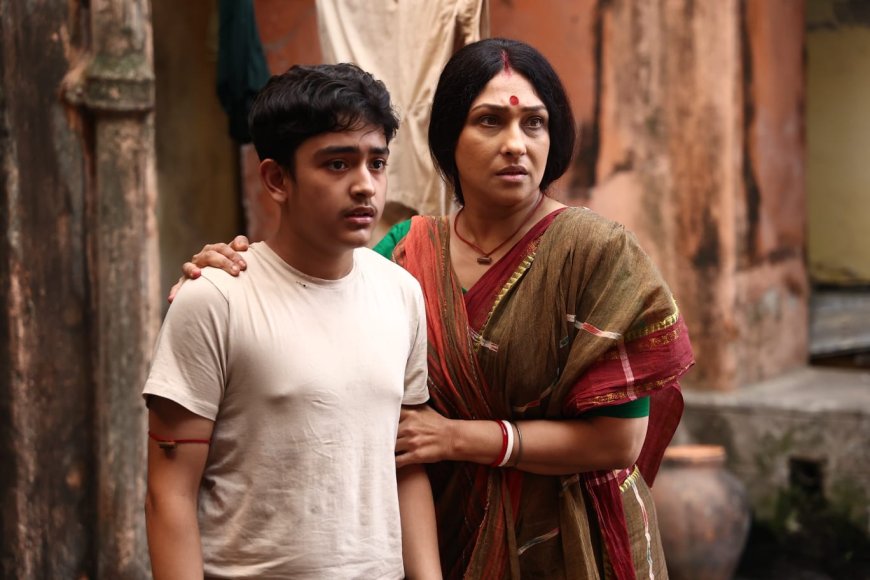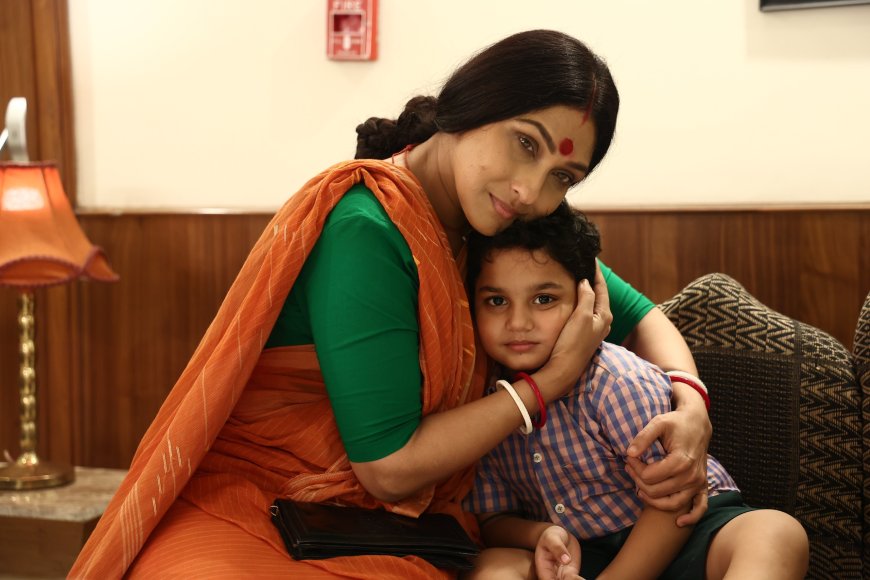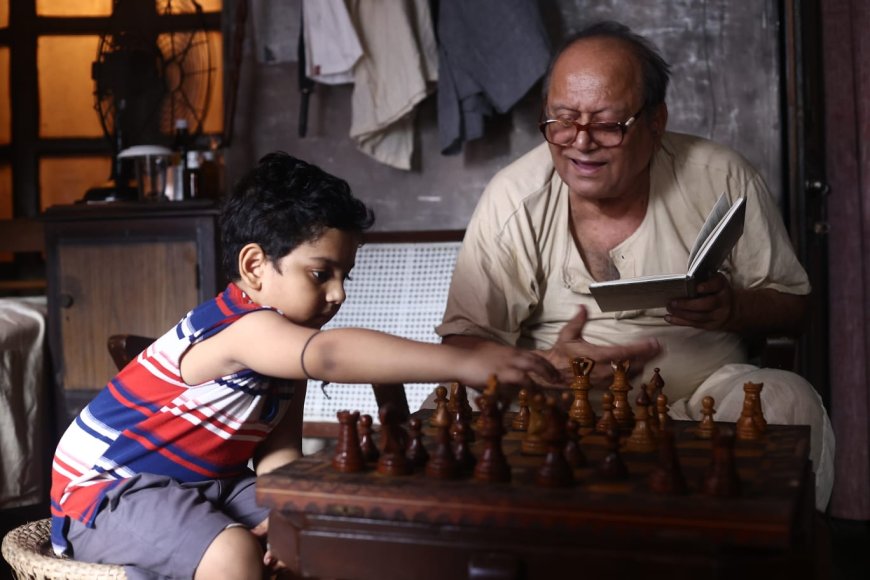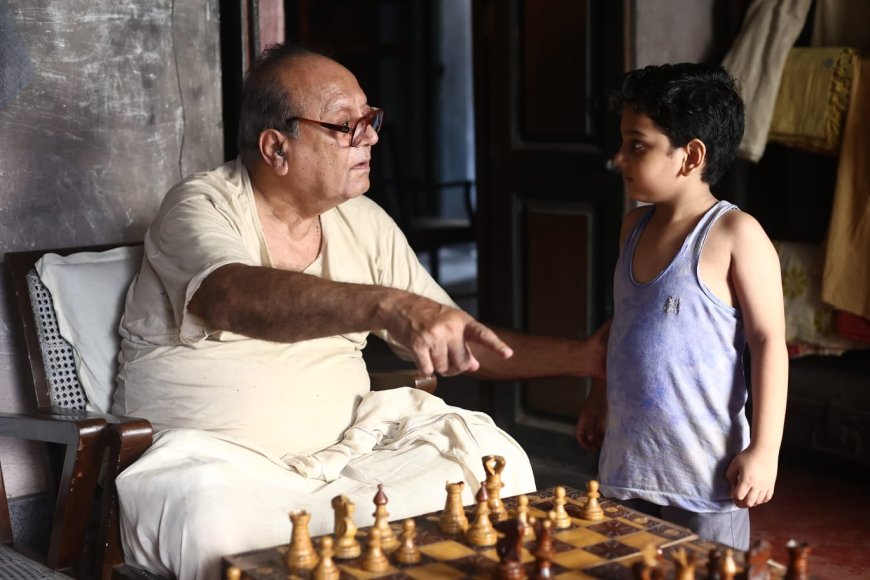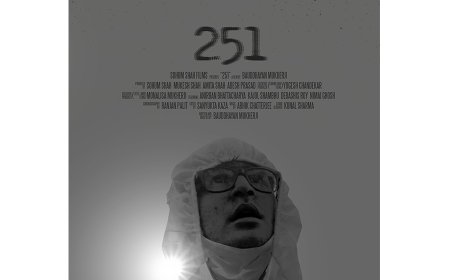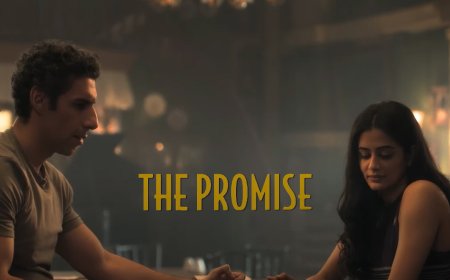DABARU – A BRILLIANT TRIBUTE TO CHESS – THE GAME AND THE PLAYER
Dr. Shoma A. Chatterji provides a comprehensive analysis on the recently released Bengali film,"DABARU".
Sports films are extremely important in terms of education, information and entertainment. They hold up the individual and collective struggles of the players within their personal lives and in the sports fields. Sadly, within the Indian audience, sports films, except the highly entertaining, totally fictional film like Lagaan, the films do not hit it well commercially.
Most Indian films on sports deal with outdoor sports like cricket, football, hockey, wrestling and so on or at the most, indoor sports like table tennis. No one seems to have researched the reasons for the commercial non-success of sports films. But one may conclude that this is because these films lack in romance, song-dance scenes and conventional villains and vamps. But most of these films are well-made though the ‘fictional’ events are a bit melodramatic and unconvincing.
Dabadu, a Bengali film directed by Pathikrit Basu, produced by Windows Communications headed by Shiboprosad Mukherjee and Nandita Roy is inspired and adapted from the real life rags-to-wins story of real life chess champion Surya Shekhar Ganguly. The introductory graphics state clearly that though this is based on a true story, fictional elements are used perhaps to add an element of drama. But these very ‘fictional’ elements carry a negative impact on this otherwise very powerful statement on individual struggle to motivate the youngsters of today to rise above the obstacles they face in their day-to-day lives in order to realize their dreams.
One fine day, the very talented five-year-old Souro (Samadarshi Sarkar) reveals to his chess-loving grandfather Navin Kumar (Dipankar De) that he has an extraordinary visual memory and an in-born talent of playing chess, always to win against veteran players much older than his five summers in the world. The grandfather, who approaches the local pawn shop everyday to sell his old chess set, enthused by the little grandson’s talent, begins to teach him the basic elements of the game. The family lives in the northern extremes of Kolkata in dire poverty as Souro’s father Gauri Shankar (Shankar Chakraborty) is not only unemployed but is also an alcoholic while the mother Karuna (Rituparna Sengupta) tries to manage with the very little they have for lunch and dinner.
Once Souro begins to win the local matches one after another, the old man who is also Souro’s best friend, looks for and finds an expert chess coach in Rathindra (Chiranjit Chakraborty) to gain from his expertise to one day, become a grandmaster. Souro’s long and arduous journey through chess begins and we watch him grow from a chubby and cuddly little Souro to a sixteen-year-old and determined Souro (Arghya Basu Roy) intent on winning every match he competes in. “The secret of a champion is not in winning, but in his ability to set out the chess board in identical order after it has been messed with during or after a game,” Rathindra keeps telling him. With the winnings Souro brings in each time, the family gets better food on the table and we find his affectionate and struggling mother Karuna Devi pleading with him to drink Horlicks.
In real life, Ganguly became an at the age of 16 and a at the age of 19. The film scans through many chess championships Souro marches and wins single-handed even when Rathindra leaves his coaching and the replacement (Koushik Sen) is everything a coach should never be. In one of these series of championships, the grown Souro wins by beating 16 opponents simultaneously within one clock hour.
In real life, Surya Sekhar has won 40 individual gold, 21 individual silver and 6 individual bronze medals in National as well as International tournaments. He was also the captain of the Indian team in the Asian Nations Online Cup 2020 which won the 2nd place. In team competitions he has won 12 gold, four silver and three bronze medals. Some of his recent achievements are winning individual gold in Hunan International Open (2019), individual gold in World Team Championship in Astana, Kazakhstan (2019), gold in National Team Championship Kolkata (2019), bronze in Binhai International Open, China (2018) and bronze in Asian Team Championship in both Classical and Rapid in Iran (2018).
The film achieves outstanding merit through the aesthetic structuring of the film through brisk and imaginative editing with razor-sharp editing cutting frequently during the chess matches with Souro’s concentration and focus offering the best moments in the film. The production design along with the cinematography effectively captures the detailing of the narrow lanes of the old Northern parts of Kolkata during the mid-1980s and beyond.
There too many songs and some could have been dispensed with as they appear to be superfluous. But the fleshing out of the main characters and their realization by actors Dipankar De, Rituparna Sengupta, Shankar Chakraborty and most importantly, the two debutants, Samadarshi and Arghya Bosu Roy as the five-year-old and the 16-year old Souro respectively are outstanding. Not once are conscious of the camera, or, overawed by the actors they are pitched against or the electric switches in their movements towards winning and their journey to championships one after another.
The alcoholic father’s slow and convincing transformation from a disturbed father to a warm, affectionate and understanding one is brought out very well. The teenage romantic touch with the young girl is treated realistically unlike a fairy tale. The best part is Souro seeking advice from the spirit of his deceased grandfather who he still falls back on when a problem hits him. Just before he becomes grandmaster for the first time, he can feel his grandfather tellinghim to “let go of his favourite pawn” sometimes to win and he chooses to let go of the queen. He wins!
The melodramatic parts are real spoilers in this otherwise motivational film specially targeted at today’s teenagers whose world is held captive in their mobile-held fists and they hardly know the world out there. Among these one is the jealous neighbor who is always peeping into the lives of the poor family, the loan shark Chandu (Kharaj Mukherjee) who sets his gang of mafia goondas to stop Souro’s Germany trip when his grandfather cannot repay his loan in full. The coach who replaces Rathindra portrayed by Koushik Sen is another very artificially created negative character who physically abuses Souro almost without reason. Another spot of melodrama is when Karuna Devi struggles to reach the match venue in Chennai, struggling with language, and her torn slipper during her journey is totally uncalled for. Did the director really intend to keep this scene?
Another fact this film “based on a true story” wrongly tampers with is to portray Souro’s father as a jobless alcoholic because as one chess historian nforms, Surya Sekhar’s real father was not an alcoholic and actually taught him the elements of chess along with the mother and the maternal grandfather. All said and told however, Dabaru is a very powerful and positive statement of the saying, “If there is a will, there is a way.”
*****
What's Your Reaction?







